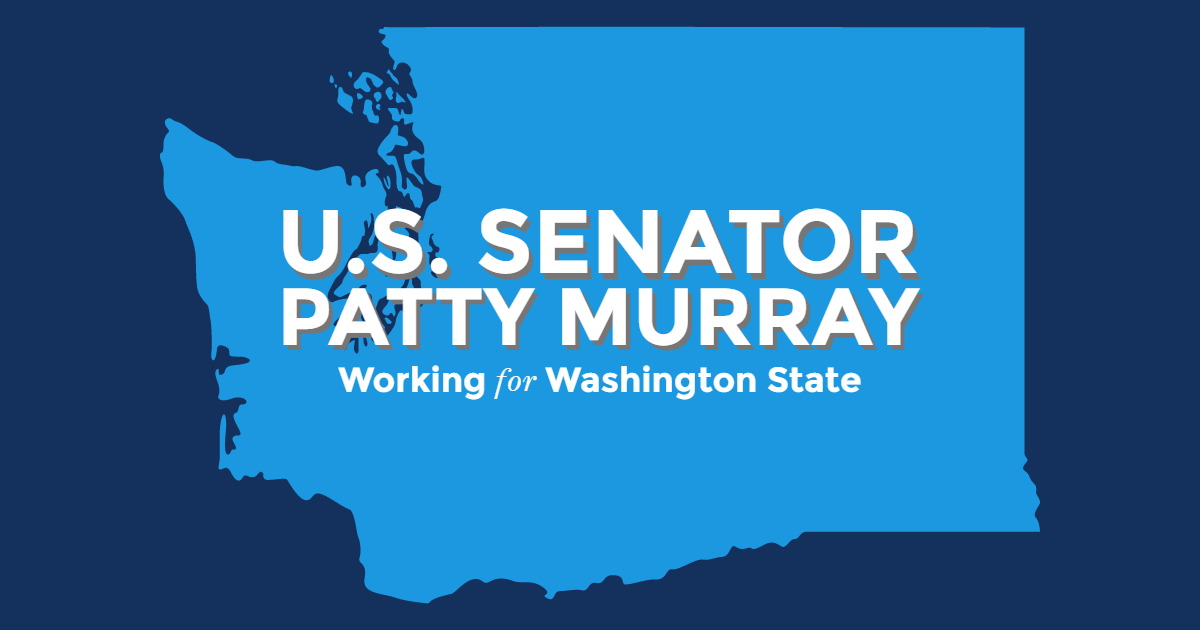Source: United States Senator for Washington State Patty Murray
Senator Murray joined local leaders and housing advocates in Seattle to discuss current efforts to secure major federal investments in affordable housing
Senator Murray: “I want to be really clear: affordable housing is a top priority for me as we negotiate the Build Back Better bill”
***Photos available for widespread distribution can be found HERE***
(Seattle, WA) – Today, U.S. Senator Patty Murray (D-WA), a senior member of the Senate Appropriations Committee, held a press conference with Seattle City Councilmember Teresa Mosqueda, Executive Director of the Seattle Housing Authority Rod Brandon, Deputy Director of Chief Seattle Club Virgil Wade, and Chief Seattle club client Martin Spotted Bear to discuss current efforts to secure major federal investments in affordable housing for Washington state residents and families. The press conference was held at the Chief Seattle Club’s Eagle Village housing site—meant to serve as temporary bridge housing to more permanent homes. However, Eagle Village has become permanent housing for many due to a lack of affordable housing in Seattle.
As a senior member of the Senate Appropriations Committee, Senator Murray is working to secure $1.8 million in Congressionally-directed spending for the Chief Seattle Club’s ?ál?al (“Home” in Lushootseed) housing project through the appropriations process. The ?ál?al project will provide permanent affordable housing options for many of the current residents of Eagle Village. The ?ál?al housing project is located across from the Pioneer Square Link Light Rail Station and features nine floors of housing, health care, and social services for over 2,700 people annually.
“As we craft our budget for the next year—I’ll be looking to make significant increases in funding for affordable housing and support for people experiencing homelessness,” Senator Murray said. “And I’m also working to make sure the return of Congressionally-directed spending will mean more investments in affordable housing where Washington state communities tell me we need it most—like the Chief Seattle Club’s ?ál?al Housing project.”
In addition to the appropriations process, Senator Murray also highlighted her efforts to secure major federal investments in affordable housing as a part of Senate Democrats’ Build Back Better budget.
“I’m fighting right now to include these investments in Build Back Better because I know how important a secure home is to a stable, healthy, and secure life. I want to be really clear: affordable housing is a top priority for me as we negotiate the Build Back Better bill.” Senator Murray continued.
“It is so fitting that Senator Murray’s efforts to Build Back Better includes support for ?ál?al. Since time immemorial, Seattle has been the home to Native people. 156 years ago, it was made illegal for Native Americans to reside within the city limits of Seattle—a city named for then-living Duwamish and Suquamish tribal chiefs. Since then, our community has worked to reclaim our sacred places. ?ál?al is our effort to build back better from these historical injustices, and we are so grateful to all of your work on behalf of Native communities,” said Virgil Wade, Deputy Director of Chief Seattle Club.
“The crises of homelessness—the crisis of housing instability—are crises of policy. These are solvable public policy issues that can be addressed if we invest adequate resources to address the crisis that has only become worse since COVID. Early in the pandemic, we responded with urgency at the local level thanks to federal funding led by Senator Murray and our Seattle delegation, but we cannot meet the scale of the need without additional congressional action to pass the Build Back Better Act. Yes, of course we need infrastructure investments for roads and bridges but we cannot connect communities, unless families in our communities have a place to call home – we need investments in human infrastructure as well as capital infrastructure to address compounding crises,” said Councilmember Mosqueda. “We stand here today calling for the passage of the Build Back Better with robust investments in housing.”
“Every individual deserves a safe and affordable place to live. Now, more than ever as we have seen the pandemic deepen the inequities for low-income people and people of color, we need leaders who will stand up and fight to make housing a priority. We applaud Senator Murray for being a champion and continuing to fight to include housing in the Build Back Better Bill,” said Rod Brandon, Executive Director of the Seattle Housing Authority.
“My cousin brought me to the Chief Seattle Club—they welcomed me with open arms. It was there where I found myself, turned my life around and got free from my addictions. I want to thank the Chief Seattle Club for what they’re doing. If it wasn’t for this club, I don’t know where I’d be,” said Martin Spotted Bear, Chief Seattle Club client.
As the second ranking Democrat on the Senate Appropriations Committee, Senator Murray has been instrumental in securing major federal investments for Washington state priorities. With the return of Congressionally directed spending, she has focused her requests on projects that benefit communities across the state, specially projects that will benefit historically underserved populations and communities. In her requests for funding, Senator Murray requested more than $1.8 million for the Chief Seattle Club’s ?ál?al project, alongside funding for many other affordable housing and public housing projects across the state. A list of Senator Murray’s spending requests can be found HERE.
Senator Murray has a been a strong advocate for affordable housing investments, securing more than $400 million in rental assistance, $170 million in homeowner assistance, over 2,400 new Emergency Housing Vouchers, and nearly $100 million for housing and services to support people experiencing homelessness in Washington state specifically through the American Rescue Plan. This year alone, Senator Murray has already announced more than $100 million in federal awards to combat housing insecurity and invest in public housing infrastructure across Washington state.
###
